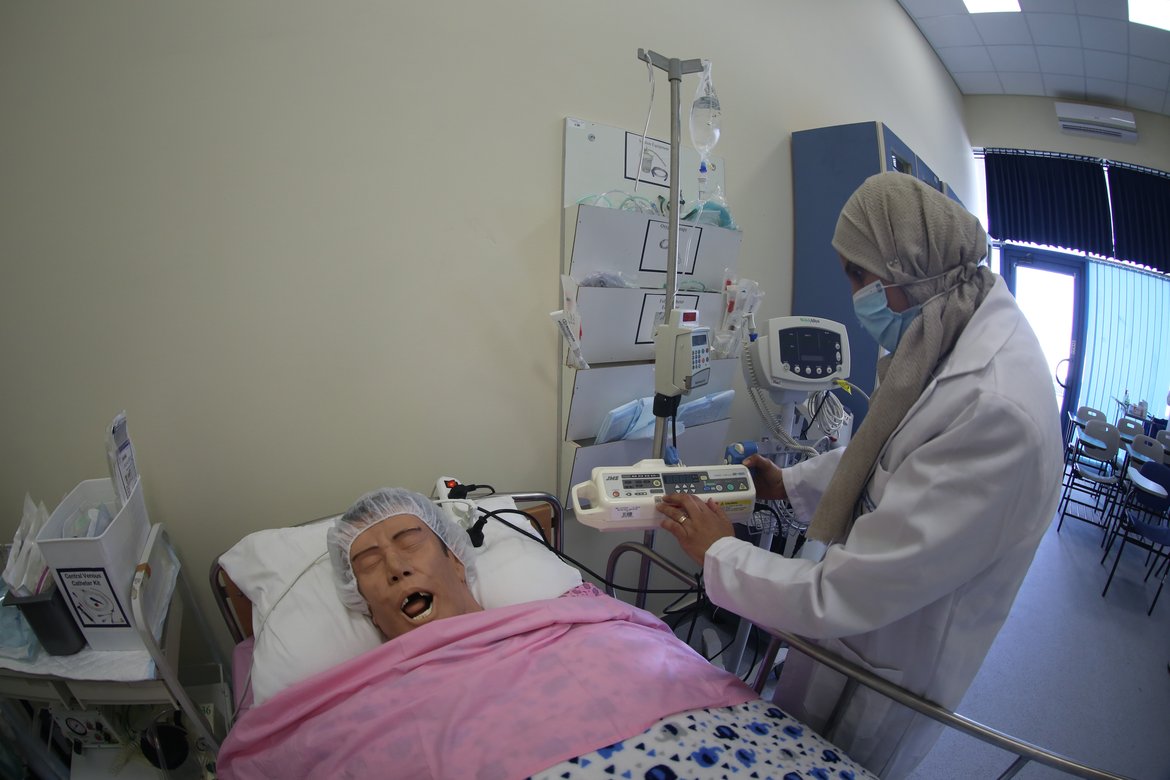The Critical Care Nursing Lab at the College of Nursing is a specialized training environment designed to equip nursing students with the advanced skills necessary to provide high-quality care to critically ill patients in intensive care units (ICU), emergency departments, and other high-acuity settings. The lab simulates real-world clinical scenarios, enabling students to practice essential skills in patient assessment, monitoring, life support techniques, and emergency interventions. Through hands-on training and critical thinking exercises, students are prepared to manage the complex needs of patients in critical conditions.
To provide an advanced learning environment where nursing students develop the skills and competencies needed to deliver exceptional care to critically ill patients, ensuring optimal outcomes and enhancing patient safety in high-acuity settings.
The mission of the Critical Care Nursing Lab is to train nursing students to become proficient in managing complex, life-threatening conditions by providing comprehensive, evidence-based care. Through hands-on experience, students will develop critical thinking, technical expertise, and effective communication skills to perform life-saving interventions and improve patient outcomes in critical care settings.
- Patient Assessment: Equip students with the skills to conduct thorough assessments of critically ill patients, including monitoring vital signs, laboratory results, and clinical indicators of patient deterioration.
- Advanced Monitoring: Train students in the use of advanced monitoring systems, such as arterial lines, central venous pressure monitoring, and cardiac monitor, to track patient status and make timely, informed decisions.
- Life Support and Resuscitation: Teach students to perform advanced life support techniques, including cardiopulmonary resuscitation (CPR), defibrillation, and mechanical ventilation, to stabilize patients in emergency or critical situations.
- Medication and Infusion Management: Provide students with the knowledge and skills to administer and monitor intravenous medications, including vasoactive drugs, sedatives, and analgesics, to maintain hemodynamic stability and manage pain in critically ill patients.
- Critical Care Procedures: Train students to nursing care such as endotracheal intubation, chest tube, and catheterization.
The Critical Care Nursing Lab is a state-of-the-art facility. The lab allows students to practice and refine their clinical skills, ensuring they are fully prepared to handle the high-stress situations they may encounter in intensive care and emergency departments.
- Mannequins: Apply a wide range of critical care scenarios, from respiratory distress and cardiac arrest to sepsis and multi-organ failure.
- Advanced Monitoring Equipment: measure vital signs such as heart rate, blood pressure, respiratory rate, oxygen saturation, and end-tidal CO2, helping students interpret and respond to clinical data.
- Clinical Skills Stations: Various clinical skills stations allow students to manage central lines, managing chest tubes, performing arterial blood gas (ABG) sampling, and other procedures commonly used in ICU settings.
- Case-Based Learning: The lab incorporates case-based scenarios that challenge students to think critically and apply their knowledge to solve complex patient care issues, fostering the development of clinical judgment and decision-making skills.
The Critical Care Nursing Lab is a vital resource that prepares nursing students to care for the most vulnerable patients in the healthcare system. By engaging in Case-Based Learning, students gain the confidence, knowledge, and skills necessary to manage patients with life-threatening conditions, respond effectively to emergencies, and collaborate with interdisciplinary teams to deliver the best possible care.
Through repeated practice and real-time feedback, students gain proficiency in critical care techniques, enabling them to transition seamlessly from the lab to real-world clinical settings.

